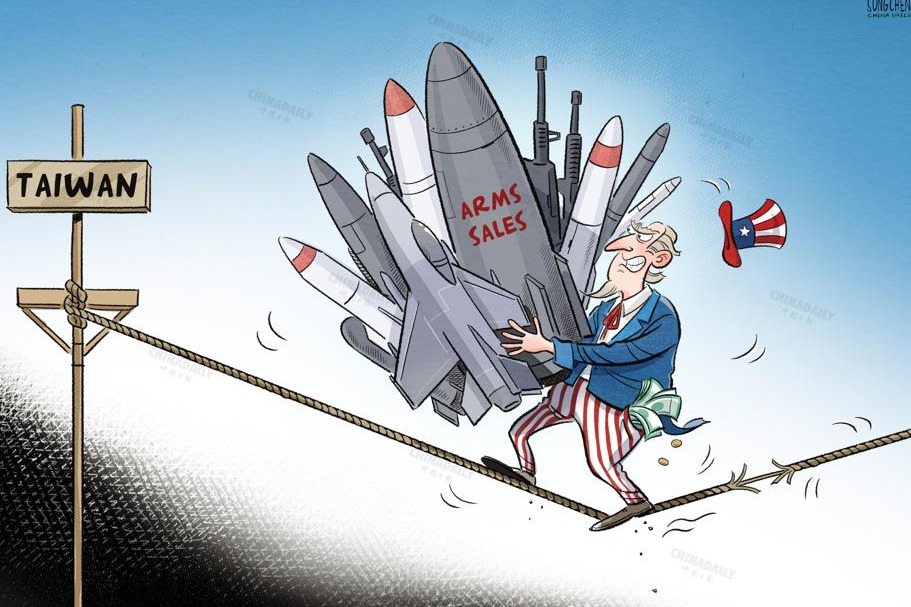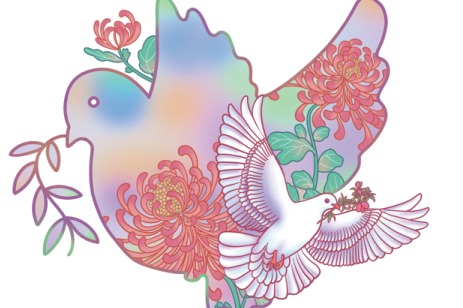Global community of human advancement


At the 20th National Congress of the Communist Party of China, CPC Central Committee General Secretary Xi Jinping delivered a speech, which covered everything from foreign policy, common prosperity and climate goals to undergirding China's firm strategic resolve, and safeguarding humankind's dignity and core interests while pursuing development and upholding people's security.
China and Africa have developed revolutionary and deep-rooted cooperation in development initiatives that has kindled rapid GDP growth in many African resource-poor countries through the Forum on China-Africa Cooperation. China's vision evidenced in its "firm stand to oppose all forms of hegemonism, Cold War mentality, and interference in the internal affairs of other nations" will help lift the forum to a higher trajectory.
It stands in sharp contrast to a conventional global governance remit where the cabals to the Washington Consensus range their influence across the global network extensively with the proliferation of varied conditionalities tied to their specific policies, which often outpace the development of coherent standards, rules and concepts by and within which societies and polities have to operate. With all the multiplicity of their diverse, not very well coordinated "development" programs and mechanisms, it has been difficult to maintain a sense of direction, in both a strategic and process sense.
Thus, the marketers of a non-existent rules-based global order crusade that has not delivered global prosperity do not sufficiently realize the potential of the goals they promote. This raises the issue of whether their sketches of people's security were fundamentally constrained during their conception by the very technocratic structures that ground their articulation.
Within these neo-colonial global governance bureaus, the supply of ideas may be artificially deflated and conceptual possibilities may be left unrealized, or sub-optimally realized, insofar as their corporate elites are preoccupied with filling out those spaces of uncertainty in shared prosperity thought and discourse, snubbing alternative ideas that would potentially be the centerpiece of engagement in shaping global shared values and humankind's prosperity.
The concern here is not so much the number and diversity of ideas, values and opinions allowed to gain currency as modes of their competitive and cooperative articulation in shared prosperity. In the light of these, it is possible to draw a conceptual distinction between two levels of articulation of global shared values and humankind's prosperity, and to note the implications of their relations for process openness in international relations and inter-humankind cooperation.
There is, at first, representations of specific interests, identities, needs, wishes, goals, claims and demands, different in different individuals and communities. This is to be distinguished from a second level of production and circulation of ideas where broad-based global concepts, principles and rules take shape and come into play.
In examining or assessing the possibilities and problems of global shared values and humanity's collective prosperity, these need to be addressed in terms of interactive explicit and broad-spectrum global relations, even as they retain their distinct conceptual status. For the two levels tend to incorporate each other in a more or less uncertain and complex process, as well as constituting relatively autonomous coherence in themselves.
Uncertainty and complexity of these progenies notwithstanding, the breadth and depth of global shared values and humankind's prosperity cannot be grasped or judged simply on their own worth, that is, on their theoretical "correctness" or the intellectual "rigor" of their formal elucidation. A person's understanding should not overlook the fact how far particular constructs inform and condition values, concepts and rules; instead, it has to conceptualize the relation between the two levels of production of ideas and implications for political openness between countries.
It is against this backdrop that President Xi Jinping's collective prosperity paradigm that embraces the African people at a higher pedestal than any other global leader, has to be viewed. This is in sharp contrast to the hitherto global governance relations that have been augured on selective security provisos and resource exploitation motivations.
China's pursuit of common prosperity is a frontal assault on these exploitive relations that hitherto existed among nations. It is aimed at improving the system of income distribution as a means of accumulating well-regulated wealth.
Furthermore, the 20th Party Congress has formally introduced the concept of modernization of common prosperity for all; material and cultural-ethical advancement; harmony between humankind and nature; and peaceful development.
As a result, Sino-African shared values will be commonly characterized by a number of distinctive and shared additional elements, including concepts and rules of economic governance, national and cultural values, traditions of discourse and arguments, and modes of representation of specific interests, needs and issues.
These elements, or complexes of elements, will tend to assume varying forms and enter into shifting relations of competition and cooperation in the process of creating shared global prosperity. Generally, the broader the range of shared vision elements at play, and the more varied and uncertain relations are, the greater are the possibilities for process openness and transparency in human development and creating a livable planet for humankind.
Indeed, Xi's vision of green growth and planetary security will be his quintessential legacy as underlined in his speech to promote harmonious living between humans and nature, building a community with a shared future for mankind, and creating a new model of human civilization. It shows up in China's determination to work "actively and prudently toward the goals of carbon neutrality in a well-planned and phased way, in line with the principle of getting the new before discarding the old."
Priming Sino-African shared values here entails conceptualization in global categories that are invested with varying local meanings which themselves are in part actualization of trends in international political (and development) thought. Hence, in order to have significant constitutive effects, the Africa-China shared mission must be allowed to attain coherence and integrity even as it comes into play in varied contexts of activity.
While it may be tied to the initiatives and leadership of countries in its emergence and development, it nonetheless gains currency as a relatively autonomous system. As a set of distinctly general categories and mechanisms of thought, discourse and practice, shared values take the diversity of ideas and activities and make them a vital part of its conceptual and institutional economy. They medicate and channel specific actors and their activities by means of an objectification that works on and through them.
The author is former UN senior policy advisor and chair of the AU Anti-Corruption Board and a professor at the School of Graduate Studies, Addis Ababa University.
The views don't necessarily reflect those of China Daily.
If you have a specific expertise, or would like to share your thought about our stories, then send us your writings at opinion@chinadaily.com.cn, and comment@chinadaily.com.cn.


































